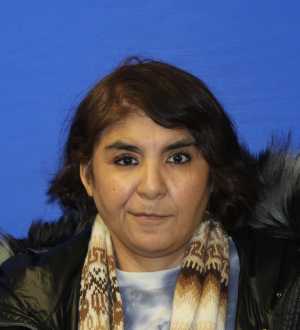Women in Antiquity
Course Info
Assignments
Content
Resources
Return to schedule of responses
Topic: Living Unpublicly in Classical Athens
Due: Sun March 23
Prompt: What do this week’s primary source readings tell us about how Athenians saw the contrast in genders?
The documents for this week are:
For your online response this week, write a post that includes the following:
- What passage or detail in particular jumped out at you as you read through it?
- What do you think the author was trying to communicate?
- In your opinion, what is this document telling us about the time and place it comes from?
- What about this document seems to relate to, support, or even contradict our other readings about this time and place?
- What would you like to find out more about?
Responses for Week 7
Response for Week 7
 Mark Wilson
1171
Mark Wilson
1171
2025-03-15 23:43:59
Hey folks! This week we’re looking at The Bacchae and scenes from the Adonis Festival. How do you read the assertive actions of the women in these two vividly told tales? What do you think the contrasts between genders in these readings tell us about the intent of the authors involved?
Week 7: “The Women at the Adonis Festival”, Idylls / Theocritus
 Christopher Alvarado
1297
Christopher Alvarado
1297
2025-04-08 19:21:18
One thing that struck me positively about *Women at the Adonis Festival* was how much the women at the center of it dominated the conversation and shaped the central narrative as a whole, the voices, emotions and observations of the ladies take center stage from beginning to end. From gossiping about their husbands to navigating the densely packed streets of Alexandria, they are animated, opinionated and very much in the home and public sphere. Their banter feels real and intimate; but their home life is set against the backdrop of an elaborate religious festival, making it clear their lives went well beyond the home and into the cultural and civic realm. This depiction emphasizes how ritual occasions allowed for self-expression; the women are not passive spectators — they are active participants who interpret, critique and relish what they see.
The scene playfully evokes the way tradition, beauty and public ritual intersect with everyday life; the women admire elaborate tapestries, comment on the Queen’s preparations and ponder the symbolic significance of the return of Adonis. Though their dialogue is infused with humor and wry sarcasm, their appearance at this public event speaks to a more meaningful stake in social memory and cultural perpetuation; they are not banished from ceremony — they determine how it is performed. This poem, instead, has something to say; it encourages us to glimpse their world through their eyes and their words and their deeds, and not through the gaze of men with pens writing down what they said and did. I would like to know how many of these moments have appeared in real life; how many ritual festivals have given women this mode of social visibility and influence?
Praxinoa
 Dania German
1222
Dania German
1222
2025-03-24 23:07:56
Today I will be writing about The Adonis Festival. One particular detail where Praxinoa responds nervously to the horses in the street and says, "Ever since I was a girl, two things have frightened me more than anything else, a horrid chilly snake and a horse," was a detail that particular caught my attention. She shows humor and vulnerability that makes her relatable. The author seems to be capturing the complexity of everyday women at the time, showing that they are not just background to the story, but active participants in both public and private life. This is refreshing as throughout the course we have been shown women as fighters, prostitutes, and goddesses, but we also see some of their vulnerable sides. This mix of humor and real life scenarios brings their experience to life in a way that feels surprisingly modern for the time it was written. From reading the text, I learned more about about life in Hellenistic Alexandria, especially the blending of Greek and Egyptian cultures under Ptolemaic rule. The women's conversation depicts a vibrant metropolitan culture in which women, despite having little to no rights, move intelligently and independently through their social environment. In contrast, women are frequently restricted to the home or utilized metaphorically in other great works of literature. This makes me think: What does Praxinoa’s mix of vulnerability and humor tell us about how women navigated public life in a male-dominated society?
Response for Week 7
 Andrea Palacio
1221
Andrea Palacio
1221
2025-03-24 13:47:31
While reading the "Women at the Adonis Festival" I found it particularly interesting that it was solely based on how women lamented and celebrated Adonis. It was very lighthearted in comparison to our other readings. I enjoyed learning that women could establish friendships and actually act as self governing individuals and enjoy a night of rituals without having to explain their whereabouts. It seemed that although they were grieving Adonis it wasn't sad but more of celebration that included rituals among them where they were not afraid to be judged, the entirety of this article felt very freeing which has yet to truly be portrayed in any of our other readings. Something I did wonder was if this celebration was open to all women regardless of economic status, or was it accessible only to wealthy women.
“The Women at the Adonis Festival”, from Idylls / Theocritus
 Nalu Cabrera
1220
Nalu Cabrera
1220
2025-03-24 12:36:55
Hello Professor and Classmates,
A part that stood out to me in '' The Women at the Adonis Festival'', from Idylis / Theocritus is ''I must say, you’ve done us many a good turn, my good Ptolemy, since your father went to heaven. We have no villains sneaking up to murder us in the streets nowadays in the good old Egyptian style. They don’t play those awful games now—the thorough-paced rogues, every one of them the same, all queer!'' This part of the story stood out to me because it explains how the author is praising Ptolemy for bringing peace and stability into their world after his father ruled this world and all it brought was a dangerous place to live in, a place where they all were afraid of because many crime occurred. This shows how good they felt after this transition happened from Ptolemy father, to him and the different way they were now about to live.
This article is telling us that these people faced political instability and they faced corruption so when they did have this change of Ptolemy coming to take over it had a huge impact on their society, which is really important because it means now they were going to be safe from everything that they were going through. The article says ''We have no villains sneaking up to murder us in the streets nowadays in the good old Egyptian style. They don’t play those awful games now'' which means criminals were allowed to do whatever they wanted to do because it was normalized and accepted. This reading relates to other reading because it mentions how corruption and political instability exists and how they just had to deal with this bad behavior that they had to endure from the leaders that ruled their world. Something I would like to know about this is what did Ptolemy do to be able to get everyone to follow his rules or it still had people who didn't want to follow these rules?
"The Women at the Adonis Festival”, from Idylls/Theocritus
 Melvin Beltre
1218
Melvin Beltre
1218
2025-03-24 05:57:20
The reading I chose was "The Women at the Adonis Festival”, from Idylls/Theocritus; it was very insightful on what women conversed about, how they spoke of their husbands and daily activities, and how they were feeling. Which I believe is what the author was trying to do to show how women acted with each other and their daily activities. The time and place are probably later in the day, before it is fully dark but not too bright outside to enjoy the surroundings of the festival, as it is a time for enjoyment and somewhat freedom. This reading does have connections to past reading but also not as many, as I can't remember exactly the last time we had a reading of two women's attention at a festival or any event together, having fun and gossiping.
My question would be, has a woman ever used a festival outing to escape her husband's household and escape indefinitely?
Women at the Adonis Festival
 Emma Perez Sr
1217
Emma Perez Sr
1217
2025-03-23 23:59:35
Finding out the whole poem was such a light-hearted read stood out to me because I believe in ancient times we didn't get to view and learn normal and happy moments so much.I believe the author was trying to communicate an interaction with two women in a public place , gossiping; just simply being women . This document is telling us about a time when festivals brought friends together and brought excitement outside the village to enjoy themselves. The “The Bacchae” seemed to be about more about Dionysus and his determination/goal, where this article was more enjoyable to read and see two women interact with each other.I would enjoy finding out more about Gorgo and Praxinoa dynamics after the festival if they would ever rekindle. I would also find it interesting that a different point of view took place in the Adonis festival.
Response for Week 7
 Veronica Castaneda
1214
Veronica Castaneda
1214
2025-03-23 23:10:22
The Bachae from Euripides
The passage that stood out to me in the Bacchae as I was reading through the story of the God Dionysus and his wicked ways to punish king Penthes for forbidding to pay worship to Dionyssus. Not only is Dionysus the God of madness, but also the God of wine and parties. The Bacchae a play by Euripides in early 400’s. The play which starts with Dionysus addressing an audience in the form of a mortal man, begins by telling the crowd how he was born. He also returned to Greece because one of the city-states has outlawed his worship. So he devises a plan to punish the women of Thebes by turning their minds into a psychotic state and also punish King Penthes by not bowing to him.
The author was trying to communicate the power of wicked Gods who pretend to become mortal and therefore luring innocent victims to their traps. The document tells us that this play took time during the Peloponnesian war, and the time during the Bronze age. This document was written in an era after the Bronze Age, but the city of Thebes was an actual state in ancient Greece.
I would like to know why wicked Gods get away with everything in Greek mythology.
Week 7 Response
 Kujege Thiam
1209
Kujege Thiam
1209
2025-03-23 19:43:56
The Bacchae is without a doubt one of my favorite readings so far. The inverting of roles in this story I feel is very well done. I also think it’s rather insightful that in this inverse situation the roles being reversed are hunter and prey. It feels as though this work is much more critical of society. What kind of point is Euripides trying to make here? Framing men as hunters and women and prey is very fitting based on what we know about Ancient Greek society. Men are weak and women are dangerous when they are able to attack men’s weakness. I wonder how different this story would be if it were written in this day and age. How would the role reversal look? Would women still be considered prey?
RE: Week 7 Response
 Brenda Rodriguez Aguilar
1210
Brenda Rodriguez Aguilar
1210
2025-03-23 21:02:37
Hello Kujege
I agree with you that the inverse gender roles are critical to society. I wonder if the God Dionysus representing the wine and the effects of alcohol is modifying social conduct is the reason for the way the genders were portrayed. In this way man could show a more sensible, weak and fearfully side and women could show a strong, brave and powerful side. As we know those changes in gender roles were not at portrayed in the society of that time.
Arrogance as an Act of War
 Jairo Diaz Rodriguez
1204
Jairo Diaz Rodriguez
1204
2025-03-23 15:18:30
Arrogance, they say? I prefer to think of it as the surcharge for standing upright in a world obsessed with bowing. Like Pentheus—dear, hapless Pentheus—stubbornly squaring off with Dionysus only to get torn limb from limb, I’ve opted out of divine diplomacy. Spare me the worship; spare me the warnings. The god of revelry himself wields his holiness like a blunt instrument, reforming skeptics by force. Frankly, I admire the efficiency. Why beg approval when you can bulldoze?
The world’s full of people clutching rulebooks. I burned mine at 17. The ashes spelled try me. Call it arrogance if it helps you sleep. I call it self-possession: unfiltered, unhinged, and zero fucks left to stockpile.
Agave sobs over the severed head of her own making, at least owning it with her “I’ve brought the punishment upon myself.” Admirable? Sure. But here’s the twist: I don’t need gods to trip me. I march into catastrophe wide-eyed, thyrsus in hand. No apologies. No safety net. Just a smirk and a middle finger. If my resolve rattles the masses, let them rattle. Stack the pyre high. I’ll light the match with my teeth, laugh as it burns, and roast marshmallows in the wreckage.
The Bacchae
 Arlene Willock
1200
Arlene Willock
1200
2025-03-22 14:48:24
The details that jumped out at me through the readings are in the play Euripides was how Dionysus sets out to corrupt the females in the city of Thebes, because he was not acknowledge as a divinity from the king Pentheus that made him mad and decides to punish all.
The Author was trying to communicate how the power of the gods, shows danger and is not able to show embrace, nature of humanity the madness and transformation showing devotion can turn into violence.
In my opinion it's telling us about Athens history during turmoil, the Peloponnesian war, the widespread of suffering and the disillusionment of traditional values, decline of power democratic ideals and shift in religious experiences.
This document support other readings showing how Athens as a city was in decline due to political instability such as the plague and the collapse of governance. contradicts the tragic standing for divine law.
What I would like to find out more about is how did the different scholars interpreted what was the hetaireia roll in all of society back then.
Reading Response Euripides from The Bacchae
 Brenda Rodriguez Aguilar
1199
Brenda Rodriguez Aguilar
1199
2025-03-19 20:46:22
Good Evening Everyone!
The reading that caught my attention was “Euripides from The Bacchae” which expressed the consequences of not recognizing the God Dionysus. The King Penthus denied Dionysus divinity which provoked the fury of Dionysus. It was very interesting seeing the traditional roles changed when Dionysis set his revenge towards Penthus. I think that the roles that he set with Pentheus and the women of Thebes set the way the acted, for example the women were hunters who didn't need any tool but their strength to put apart Pentheus limbs while in the other hand Pentheus being characterized as women wasn’t strong enough to fight back or defend himself. Those were typically stereotypical roles belonging to men and women consequently.
My question is: Why did Dionysis pick to invert the roles in his revenge?
Response for Week 7
 Francisco Baez
1198
Francisco Baez
1198
2025-03-19 11:54:50
Euripides’ The Bacchae offers a fascinating perspective through which I can analyze the gender dynamics in Ancient Athenian society. The play vividly juxtaposes the stringent rules imposed on men against the untamed and wild essence of feminine divinity, shedding light on the intricacies and conflicts within Athenian views on gender (Euripides, 2021). During my in-depth study of the text, I was particularly struck by a specific scene: the Bacchae chorus reveling in their newfound freedom in the mountains, liberated from the confines of Theban social norms. This powerful imagery eloquently demonstrates how women, when unbound from patriarchal expectations, embody a formidable force of nature and divinity.
From where I stand, it appears that Euripides is conveying a deep-seated criticism of the societal expectations thrust upon both genders. While male characters such as Pentheus strive for dominance and structure, the women’s ecstatic devotion to Dionysus represents an innate freedom and unpredictability that instills fear in their male counterparts (Euripides, 2021). This work provides insight into a period when Athens was wrestling with the fluidity of gender roles, as the mere existence of a deity that transcends human boundaries poses a challenge to the established social order.
Ultimately, The Bacchae shares thematic elements with other contemporary works, such as Aristophanes’ comedies, which frequently satirize gender relations. However, while Aristophanes adopts a more comedic approach, Euripides exposes the devastating consequences of disregarding the divine feminine. I find myself curious to ponder the historical context surrounding The Bacchae—what societal events inspired its creation? How did contemporary audiences receive this daring portrayal of gender? As I contemplate this impactful text, it becomes evident that the discourse on gender in The Bacchae is not merely a reflection of its time but an enduring exploration of the equilibrium between control and chaos inherent in human nature.
Responses for Week 7
 Jenisis Ayala
1176
Jenisis Ayala
1176
2025-03-16 19:19:30
One section that particularly resonated with me from Euripides' play "The Bacchae" is when Pentheus, blinded by arrogance and resistance to worship of Dionysus, disguises himself as a woman to spy on these Bacchic rituals and trips up on frenzied Maenads—Maenads included in that trio: his mother. What struck me about that scene is how it draws out the themes of divine power, human foolishness, and the inversion of social roles. The playwright seems to be getting across how dangerous it is to deny or try to control things that one does not understand, especially regarding ecstatic religious experience and expectations of society.
In *The Women at Adonis Festival* from *Idylls* by Theocritus, it is marvelous to read about the ritual description. The staged glimpse we get into women’s religious life and society shows how they carve out places to express themselves and form communities outside the firm constraints of patriarchal Greek life. It makes it seem like, though outwardly they were confined publicly, they still operated rather independently within rituals and private spaces.
Both texts provide deep insight into the tensions of the time. "The Bacchae" suggests essentially a burning anxiety about wild human urges, female strength, and diminishment of prudence. Meanwhile, "Women at Adonis Festival" brings out the contrast between public male dominance and hidden, substantial roles that women play as priests and worshippers. Together, these pieces see a society wrestling with disposition versus disruptions, masculine versus feminine powers, and internally and externally different expressions of worship.
These readings relate to earlier discussions about roles of gender and religious life in classical Athens. While Dover's 'Classical Greek Attitudes to Sexual Behavior' points to rigid hierarchies in Greek society, both 'The Bacchae' and 'the Adonis Festival Women' complicate this impression by showing moments when accepted cultural norms are broken. Tensions are also visible between public sanctioned religious practice and private ecstatic rituals that we've already seen to be contrasted in our discussion of life, public and private, in Athens.
I would love to spend a little more time thinking about how festivals properly celebrating women, like Adonia, take their proper place among the religious landscape of Ancient Greece. How did Greek men think about such occasions? Did these festivals provide opportunities for women to assert themselves, or did they reflect what society expected women to do? Also, I am wondering how themes from "The Bacchae" have resonated and reverberated later on in literature and philosophical thought. Themes of divine madness and human resistance mean so much.